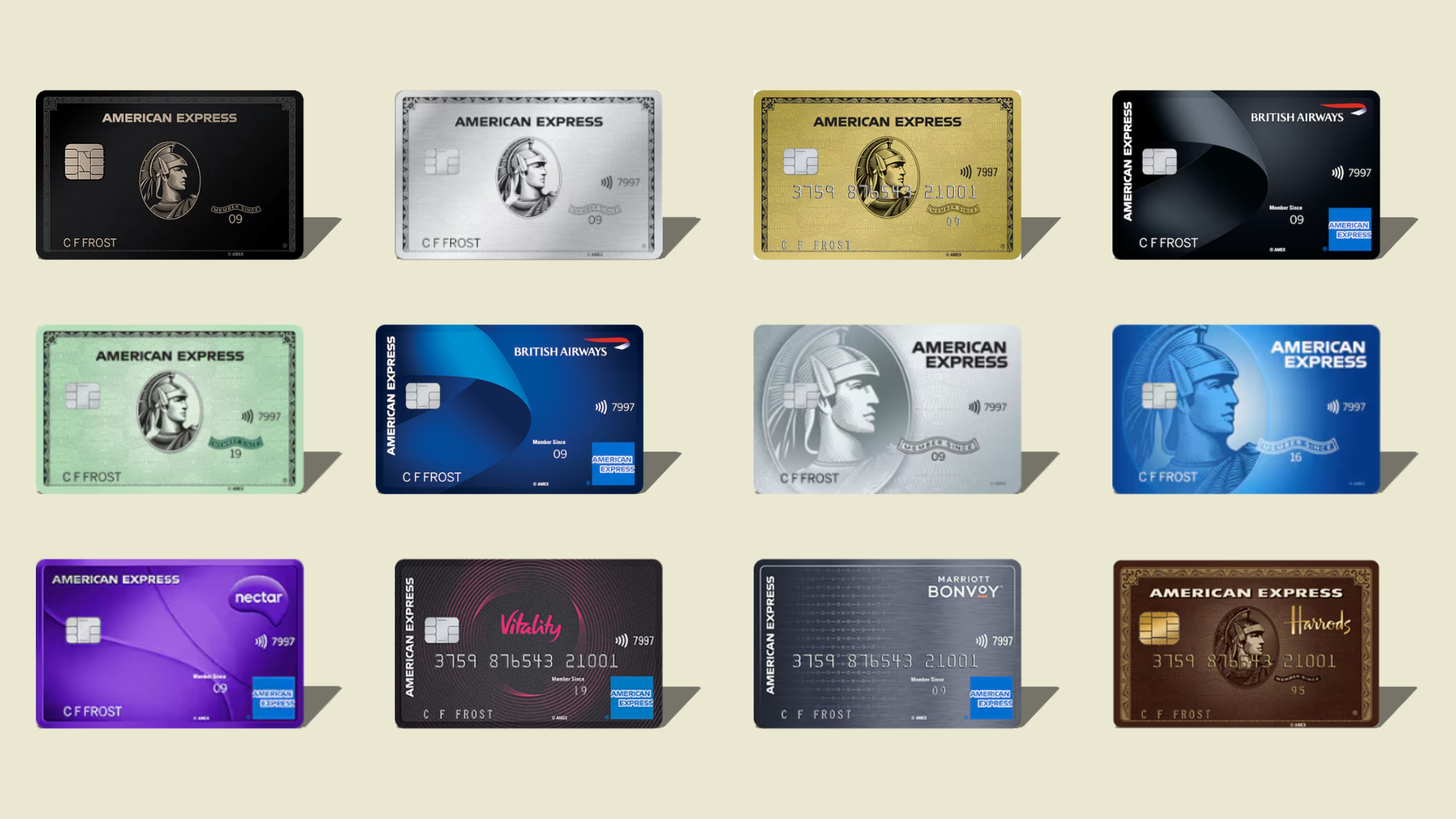How to earn cashback on spending
From credit cards and current accounts to cashback websites, there are plenty of ways to earn cashback on the money you spend

John Fitzsimons

Get the latest financial news, insights and expert analysis from our award-winning MoneyWeek team, to help you understand what really matters when it comes to your finances.
You are now subscribed
Your newsletter sign-up was successful
Want to add more newsletters?

Twice daily
MoneyWeek
Get the latest financial news, insights and expert analysis from our award-winning MoneyWeek team, to help you understand what really matters when it comes to your finances.

Four times a week
Look After My Bills
Sign up to our free money-saving newsletter, filled with the latest news and expert advice to help you find the best tips and deals for managing your bills. Start saving today!
One of the best ways to protect your money from the impact of inflation is to move your cash to a high-interest savings account. Another strategy is to try and earn cashback on the money you spend.
Selecting the right financial product or adapting the way you shop can ensure that virtually every time you spend money you get a portion back in the form of cashback.
Below we run through the best ways to earn cashback: from spending on cashback credit cards, current accounts and through cashback websites.
MoneyWeek
Subscribe to MoneyWeek today and get your first six magazine issues absolutely FREE

Sign up to Money Morning
Don't miss the latest investment and personal finances news, market analysis, plus money-saving tips with our free twice-daily newsletter
Don't miss the latest investment and personal finances news, market analysis, plus money-saving tips with our free twice-daily newsletter
1. Earn cashback from your credit card
One of the easiest ways to earn cashback is by using the right credit card. A range of different cards reward shoppers with cashback simply for using the card for purchases. Cashback is calculated as a percentage of the money spent, and it’s paid either monthly, quarterly or annually, depending on the individual credit card. In some cases, the card will pay a higher rate in the first couple of months.
To get the best value from a cashback credit card, it’s important to put as much of your regular spending on the card as possible. That way you earn cashback on the maximum amount each month.
Make sure you don't use this as an excuse to overspend. Cashback credit cards, and other forms of reward credit cards, are really only suitable for shoppers who can clear their balance in full every month. Otherwise, the interest charged on the outstanding balance will swiftly erode the cashback earned, leaving you with little to nothing in the form of rewards.
American Express Cashback Everyday Credit Card
This is the cashback card now pays a rate of 5% in the first five months, and cashback is capped at £125. This makes it the highest cashback earn rate of any UK credit card. After the welcome period, you earn a rate of 0.5% if you spend less than £10,000 in a year or 1% above that level. The best part? There’s no annual fee for this Amex card.
American Express Platinum Cashback Everyday Credit Card
The other American Express card that offers cashback is its Platinum Cashback Everyday credit card, but this has an £25 annual fee. New customers can earn 5% cashback on up to £125 for three months – plus a £25 cashback bonus.
One downside to American Express credit cards is that not all retailers accept them. As a result, it may be difficult to maximise the cashback earned on your spending.
Lloyds Bank World Elite Mastercard
One non-Amex alternative is the Lloyds Bank World Elite Mastercard, which offers 1% cashback on purchases above £15,000. For purchases below that sum, you earn 0.5%. But, there is a £15 monthly fee for this credit card.
2. Earn cashback from your bank account
A host of current accounts now offer customers cashback when they spend through their current accounts. This is generally focused on the payment of household bills using direct debits and sometimes on spending with your debit card. As most cashback current accounts charge a monthly fee, it’s important to take this into account when deciding if the product is the right one for you. If you want to get a larger lump sum from your current account, you might prefer to opt for an account where you get a bonus for switching banks.
Here are a few of the top bank accounts for cashback.
Santander Edge
1% cashback on household bills, for example, council tax, supermarket spending and energy bills, capped at £10 a month. You must pay by direct debit to qualify. The account has a £3 monthly fee.
NatWest reward account
You can earn 1% cashback with selected retailers with NatWest Rewards, capped at £5 a month. To qualify, you must have at least two direct debits set up for a minimum of £2. You can redeem your rewards as money back into your account, donate to charity or trade them for an eGift card. This account has a £2 monthly fee.
Club Lloyds Silver Account
This account is ideal if you’re looking for a packaged bank account, as it comes with more perks than just cashback, You can earn up to 15% back with selected retailers including Costa, Sainsbury’s and Just Eat. Plus, the card offers fee-free spending abroad, mobile phone insurance and UK roadside breakdown family cover, to name a few of the benefits available. This all comes at a £3 monthly fee, which can be waived if you pay in a minimum of £2,000 a month into your account.
The Halifax Reward account
This reward card pays cashback no matter how you spend your money. It pays account holders £5 a month so long as they stay in credit and spend at least £500 a month, or keep £5,000 in the account.
3. Earn cashback from your online shopping
Finally, it’s worth flagging up the potential to earn cashback every time you shop online through cashback websites.
Cashback websites like TopCashback and Quidco have partnerships with thousands of retailers. The idea is that if you head to the retailer’s website via a tracked link on the cashback website, and then spend money with that retailer, you will get a portion of that spend back in cashback. These sites get paid a referral fee for your custom, and then hand over some or even all of that fee to users in the form of cashback.
Most cashback apps require you to make purchases through their app, but this isn’t so ideal when you’re in a rush. Mobile app Cheddar is another cashback option, and all you need to do is link your current account to your Cheddar app. Once this is done, the app will track your spending and you automatically earn cashback when you spend with selected retailers. You can then transfer your cashback to your linked bank account.
Generally, cashback sites have a free membership tier, with a premium tier that will set you back around £5 a month but means you get faster cashback, and sometimes a higher rate of cashback too.
The sums you get may seem small when you look at individual purchases but they can add up substantially over time if you get into the habit of using a cashback site every time you shop online.
Many cashback sites offer a browser plug-in so that whenever you visit a retailer you get a notification if you can earn cashback on that site, which is a helpful reminder. Some sites have mobile apps allowing you to earn cashback even when shopping in person.
Get the latest financial news, insights and expert analysis from our award-winning MoneyWeek team, to help you understand what really matters when it comes to your finances.
Vaishali has a background in personal finance and a passion for helping people manage their finances. As a former staff writer for MoneyWeek, Vaishali covered the latest news, trends and insights on property, savings and ISAs.
She also has bylines for the U.S. personal finance site Kiplinger.com and Ideal Home, GoodTo, inews, The Week and the Leicester Mercury.
-
 ISA fund and trust picks for every type of investor – which could work for you?
ISA fund and trust picks for every type of investor – which could work for you?Whether you’re an ISA investor seeking reliable returns, looking to add a bit more risk to your portfolio or are new to investing, MoneyWeek asked the experts for funds and investment trusts you could consider in 2026
-
 The most popular fund sectors of 2025 as investor outflows continue
The most popular fund sectors of 2025 as investor outflows continueIt was another difficult year for fund inflows but there are signs that investors are returning to the financial markets
-
 What are British Airways Amex companion vouchers, and how do they work?
What are British Airways Amex companion vouchers, and how do they work?American Express customers with British Airways credit cards can effectively double the value of their Avios points by using a companion voucher. We look at what they are, and how you can use them.
-
 American Express introduces 'Plan It' payment instalment option
American Express introduces 'Plan It' payment instalment optionNews Amex users can now split parts of their credit bill into further instalments. Is it worth it?
-
 Which is the best American Express credit card?
Which is the best American Express credit card?American Express credit cards can help you earn cashback or reward points on everyday spending, but which card is the best for you? We compare the options
-
 Act now to bag NatWest-owned Ulster Bank's 5.2% easy access savings account
Act now to bag NatWest-owned Ulster Bank's 5.2% easy access savings accountUlster Bank is offering savers the chance to earn 5.2% on their cash savings, but you need to act fast as easy access rates are falling. We have all the details
-
 Moneybox raises market-leading cash ISA to 5%
Moneybox raises market-leading cash ISA to 5%Savings and investing app MoneyBox has boosted the rate on its cash ISA again, hiking it from 4.75% to 5% making it one of top rates. We have all the details.
-
 October NS&I Premium Bonds winners - check now to see what you won
October NS&I Premium Bonds winners - check now to see what you wonNS&I Premium Bonds holders can check now to see if they have won a prize this month. We explain how to check your premium bonds
-
 The best packaged bank accounts
The best packaged bank accountsAdvice Packaged bank accounts can offer great value with useful additional perks – but get it wrong and you could be out of pocket
-
 Bank of Baroda closes doors to UK retail banking
Bank of Baroda closes doors to UK retail bankingAfter almost 70 years of operating in the UK, one of India’s largest bank is shutting up shop in the UK retail banking market. We explain everything you need to know if you have savings or a current account with Bank of Baroda
